Hospitality Waste Reduction
- Responsible Cafes is an organisation/program that provides educational material on more sustainable product options for the hospitality sector. Their website contains various resources, waste education and lists responsible cafes participating in the scheme. See https://responsiblecafes.org
- Ekko is another program that allows you to search for environmentally sustainable products in all sectors including food and beverage. See https://ekko.world/Default.aspx
- Reducing takeaway food container waste – The BYO Containers https://www.byocontainers.org/ program and Trashless Takeaway Facebook and Instagram pages lists restaurants around Australia that allow you to bring your own container to pick up your takeaway food, enabling a reduction in use of recyclable or compostable (only in some commercial composters) food containers.
- Revolving re-useable containers – Infinity box https://infinitybox.com.au/ is a program that lists participating businesses that allow you to order your takeaway in an Infinity Box container. The container can be returned anytime, to any participating restaurant, so it can be reused, again and again.
- Yume work with leading food suppliers to ship surplus stock, that may otherwise have been wasted, to smart hospitality and retail businesses. Stock may be considered surplus for an number of reasons: a supplier may have a cancelled or placed an incorrect order, there may be no space for new stock, or a product might be close to code. This can leave primary producers, wholesalers, distributors and manufacturers with tonnes of surplus food and a lack of time or the contacts to re-sell it. Yume provides the network to sell this surplus stock. See https://yumefood.com.au/
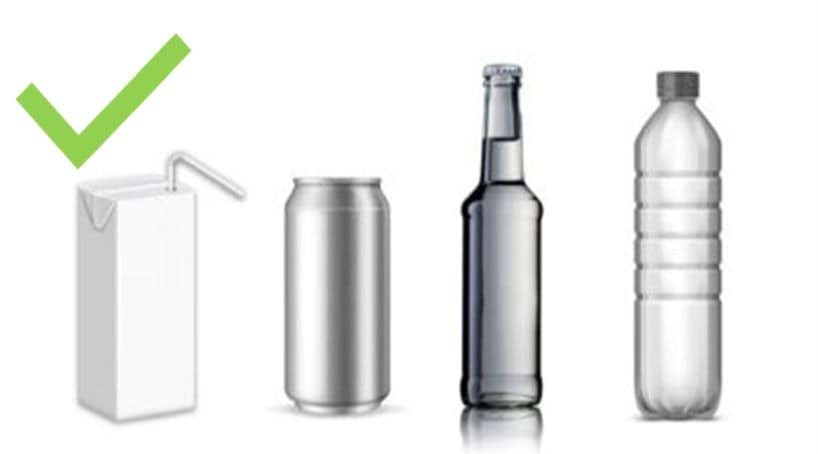
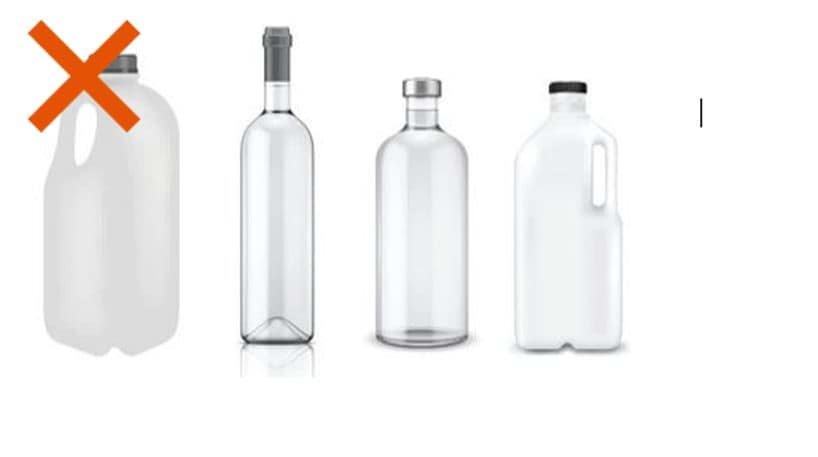
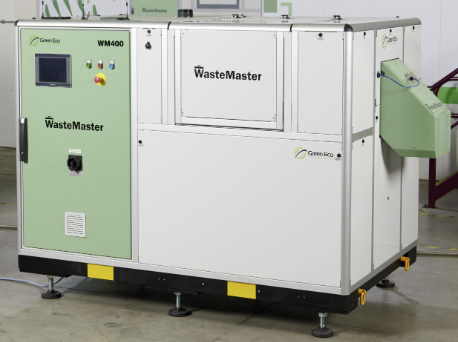
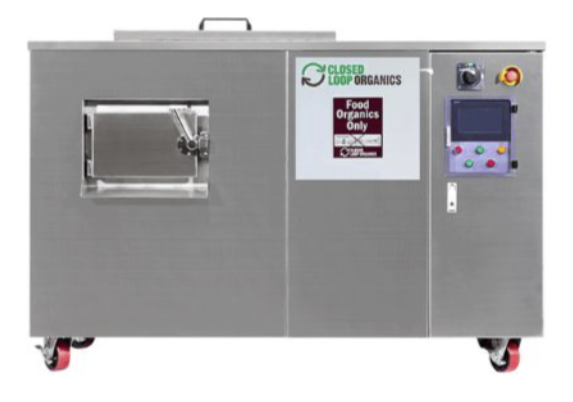
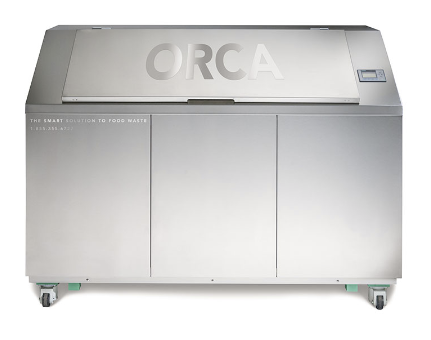
Mechanical systems to treat food waste onsite – Food digestors
On site food and organic waste treatment/pre-processing systems can reduce the footprint area of a bin store by reducing the number of bins required, and can reduce waste collection frequency when food or organics waste can be diverted to these units.
These units can reduce food scraps to 90% of their original volume in 24 hours, through heat and agitation, and the by-product is a compost material. The units take all kinds of food ie fruit, vegetables, meat, fish, eggshells so sorting is not an issue. These units prevent generation of the greenhouse gas methane (methane is 25 times more detrimental than carbon dioxide) which otherwise is generated when organic wastes decompose anaerobically in landfills. The suppliers usually can provide Green-house gas cost v benefit assessments of their units. These systems are increasingly being introduced around Melbourne.
- WasteMaster is an Australian technology which converts putrescible waste to a concentrated residue within 24 hours. https://www.greenecotec.com
- Closed Loop Organics provide CLO’ey bins of different capacity and rental servicing costs. More information available at: http://www.closedloop.com.au/domestic-composter
- ORCA is a low energy consumption, digester unit that generally remains operational across the entirety of the day. As such, the weekly digester capacity has been calculated under the assumption of a 24 hour per day, 7 day per week operation. There exists sufficient capacity within the digester to operate under fewer hours per day if required. https://www.feedtheorca.com.
- Enrich360 have a wide range of commercial size and domestic dehydrators that they say produces a nutrient rich fertiliser. See https://www.enrich360.com.au/
- Other systems such as PulpMaster, EcoGuardians (Gaia system) or Biobin generally provide systems that dehydrate or mash up food waste to reduce total volumes, but operate slightly differently to the above systems.
Commercial units use kilograms as the input-output descriptors. Note that generally the conversion for food waste from L to Kg is approximately 0.425. i.e. 425kg of food waste is approximately 1000L.
The SA government have a good spreadsheet that can convert various waste types from L to kg. https://www.greenindustries.sa.gov.au/documents/Waste%20and%20Recycling%20Reporting%20Template.xlsx?downloadable=1
Surplus food donation
Organisations that collect surplus food for human consumption include:
SecondBite (Vic, NSW, WA) – SecondBite redistributes surplus fresh food to community food programs around Australia. Food is donated by farmers, wholesalers, markets, supermarkets, caterers and events. This high-quality surplus food is redistributed to community food programs that support people who are homeless, women and families in crisis, youth at risk, indigenous communities, asylum seekers and new arrivals.
FareShare (Melbourne, Brisbane) – FareShare, is a not-for-profit organisation, rescuing food to fight hunger. It collects quality food that would otherwise be wasted from Melbourne businesses such as food wholesalers, retailers and caterers. Volunteers in FareShare’s kitchen use this food to prepare healthy, nutritious meals that they distribute to over 100 charities providing emergency food relief for the hungry and homeless.
OzHarvest (NSW, Qld, Vic, ACT, SA, WA) is the first perishable food rescue organisation in Australia collecting quality excess food from commercial outlets and delivering it, direct and free of charge, to 600 charities providing much needed assistance to vulnerable men, women and children. www.ozharvest.org.
FoodBank (Vic, NSW, Qld, SA, WA, Tas, NT) – Foodbank is Australia’s largest food relief organisation, operating on a scale that makes it crucial to the work of the front line charities who are feeding vulnerable Australians. Foodbank provides more than 70% of the food rescued for food relief organisations nation-wide. https://www.foodbank.org.au
Loaves and Fishes (Tas) – https://loavesandfishestasmania.org.au/
Takeaway packaging failures and contamination
One of the biggest problems causing failed recycling is the difficulty in avoiding contamination of potentially recyclable waste streams. Most waste streams are recyclable if they are separate and treated in their own way. However, when they are mixed together, they often deliver a contaminated co-mingled stream that cannot be recycled e.g. when a recyclable plastic bottle is included with compostable food waste, or a soft plastic bag goes into recycling bins. The entire contaminated load often ends up in landfill.
A solution can involve very careful selection of packaging. To simplify recycling, it is easier to minimise the number of waste streams people have to separate and provide clear advice on what items go into each bin.
Where food is consumed on site, to ensure food waste can be composted effectively, plates, bowls, cups, cutlery, straws, should not go into food waste bins, unless these items are domestically or commercially compostable.
Items that are specified as commercially compostable will not compost in a domestic onsite compost bin. The combined commercially compostable packaging and food will have to be taken offsite for commercial composting. Commercial composting is undertaken at higher temperatures than domestic composting.
Check with each packaging supplier and also the waste contractor to ensure parties definitions of compostable align. Further, if lids are provided with compostable bases, check that they too are compostable. Some very established compostable packaging suppliers still unfortunately sell their food packaging with recyclable lids that will contaminate a compostable food waste load.
The image here is of sugarcane clamshell packaging sold with sugarcane and PET lid options. Sugarcane clamshells are plastic-free packaging that are made from reclaimed and rapidly renewable sugarcane pulp. They are certified home (domestic type) compostable but if purchased with PET lids the PET lids will often end up contaminating the food composting load. Purchasing the sugarcane lids would remove the risk of contamination of the compostable food waste load.
As an alternative to lids, home compostable cling wrap can be used. An Australian company Great Wrap is now producing home compostable cling wrap for foods made from food waste rather than bioplastics developed from specifically grown plants. See https://www.greatwrap.co/
Takeaway food and drink containers
Recycling paper coffee cups – Recycled paper cups with the ARL (Australasian Recycling Label) ‘Drop Off Only’ logo directs consumers to recycle their paper cup at one of more than 1500 collection points across Australia run by Simply cups. Currently 7 Eleven stores are the primary locations for dropping off the appropriately labelled cups, along with some Coles stores and other locations such as some cafes.
In addition RecycleMe packaging from Detpak used on cups, bags and sachets, allows the RecycleMe™ lining to be easily removed from paper packaging when processed at a recycling mill https://www.detpak.com/recycleme/
Home compostable coffee cups – Certified home compostable coffee cups are now being marketed. BioPak now sell their “Aqueous” cups which are made with a water-based dispersion coating that gets absorbed into the paper the cup is made from. They also have a certified home compostable sugarcane lid providing a completely home compostable takeaway cup solution see https://www.biopak.com/au/about/home-compostable-cups-and-lids

